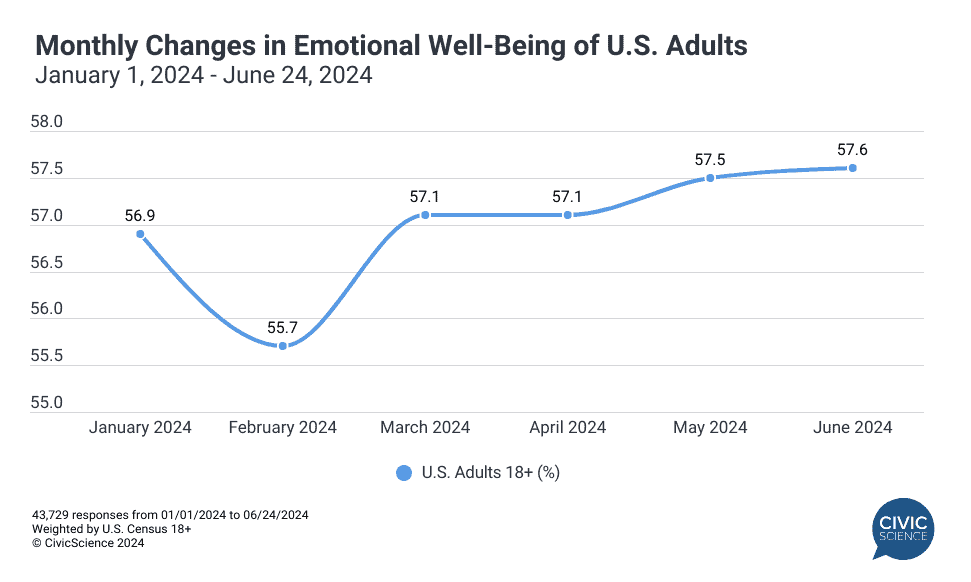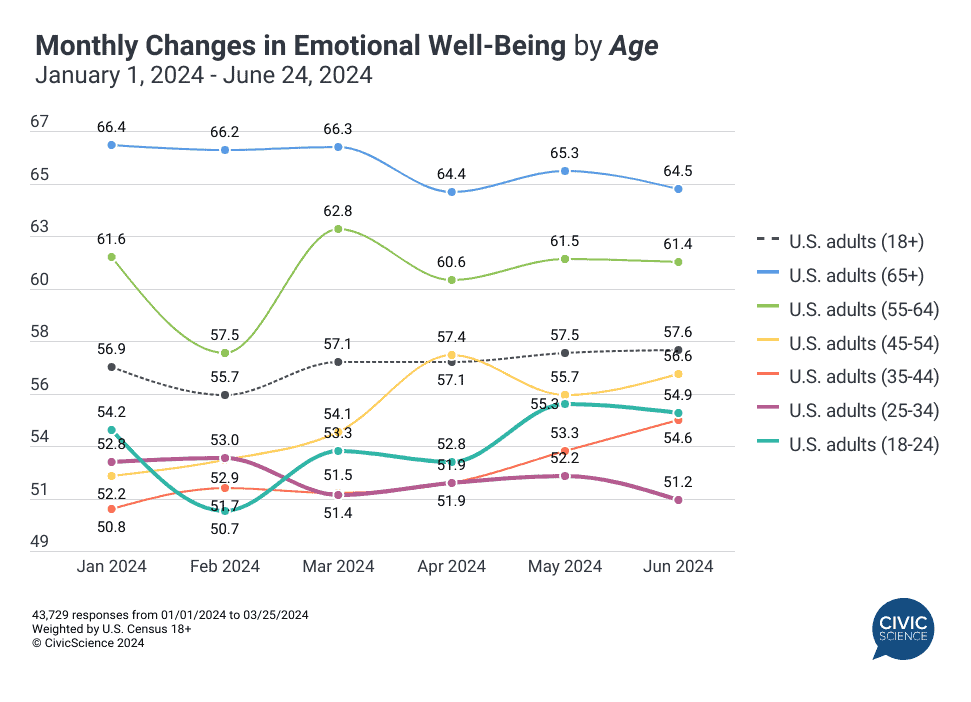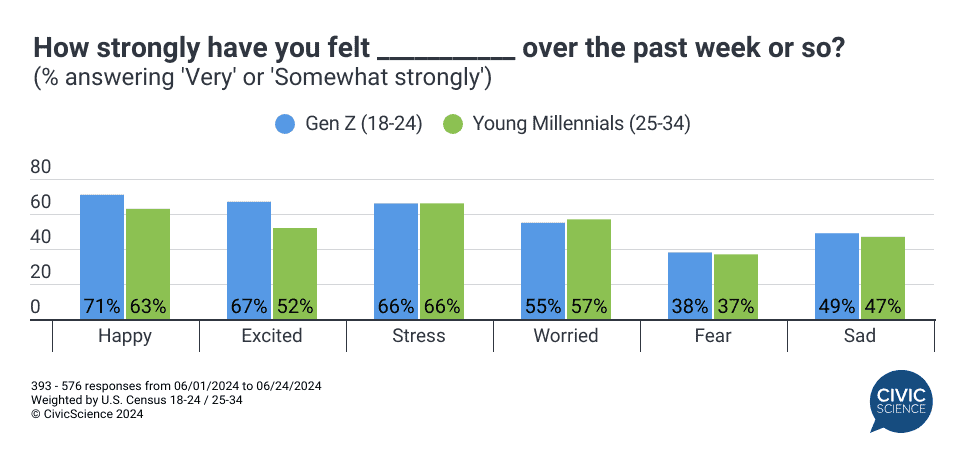Ongoing tracking by the CivicScience Well-Being Index shows that the collective emotional well-being of Americans is up for the month of June. Well-being climbed 0.1 points to a score of 57.6%, which is based on how strongly respondents report feeling different emotions such as stress and happiness. By mid-year, Americans are feeling a greater sense of well-being compared to the start of the year.

Join the Conversation: How happy do you consider yourself to be?
Warmer weather and vacation season may be helping to boost the collective mood. Although not always correlated, the improved well-being of U.S. adults coincided with rising outlook on the U.S. economy, as well as other economic factors such as finding a new job and purchasing a home.
But like most indexes tracked by CivicScience, there are major differences in emotional well-being across the population. Gen Z (aged 18-24) has historically felt low well-being compared to other age groups, yet data show Gen Z’s well-being has been climbing rapidly since February. Despite a slight decline this month, Gen Z’s well-being score rests 3.7 points above their young Millennial counterparts at 54.9%. That’s a tad higher than older Millennials (35-44) and not far from Gen Xers (aged 45-54). On the other hand, well-being among younger Millennials (aged 25-34) fell during that time frame and saw a significant downturn in June.
Although seniors (aged 65+) report the highest well-being out of any age group, well-being has been averaging much lower in Q2 for these Baby Boomers.

What could explain the current Gen Z-Millennial gap? Millennials aged 25-34 include “peak Millennials” (born in 1990 and 1991), who are at an age when many are looking to purchase homes. A high percentage are currently being held back from entering that stage of life by the record-breaking cost of homes, as well as high debt loads. The hopes of purchasing a first-time home are being put on hold for younger Millennials, while more adventurous first-time buyers are opting for fixer-uppers.
Additional data show in the month of June, young Millennials reported far less happiness and excitement than Gen Z adults, while expressing more worry. Both groups felt high levels of stress, well outranking the general population (56%).









